This post has been medically reviewed by Dr. Sarah Mathis, D.O.
Gut health is way more than just about how you eat, digest, and, ahem, POOP. 🙂 I’m not the only women who got pregnant after taking probiotics (oh, and doing a TON of other things), and improving your gut health can do wonders for your fertility and reproductive health.
Your gut microbes have a huge impact on your fertility. Gut microbiota dysbiosis (aka when your microbiome is screwed up) is linked to polycystic ovarian syndrome (PCOS), insulin resistance, and recurrent pregnancy loss.
Additionally, when you have poor gut health, your immune system doesn’t work well, allowing dangerous pathogens into your body. And when your immune system doesn’t work well it can lead to chronic inflammation. And, I think you can connect-the-dots here, chronic inflammation is linked to higher rates of infertility.
Here is the FABULOUS news women. There is SO MUCH YOU CAN DO to improve your gut health! You’ll be healing yourself and preparing for a healthy pregnancy. Additionally, improving gut health is related to many other improvements to health, including mood, reproductive health, skin, and cardiovascular health. You have everything to gain!
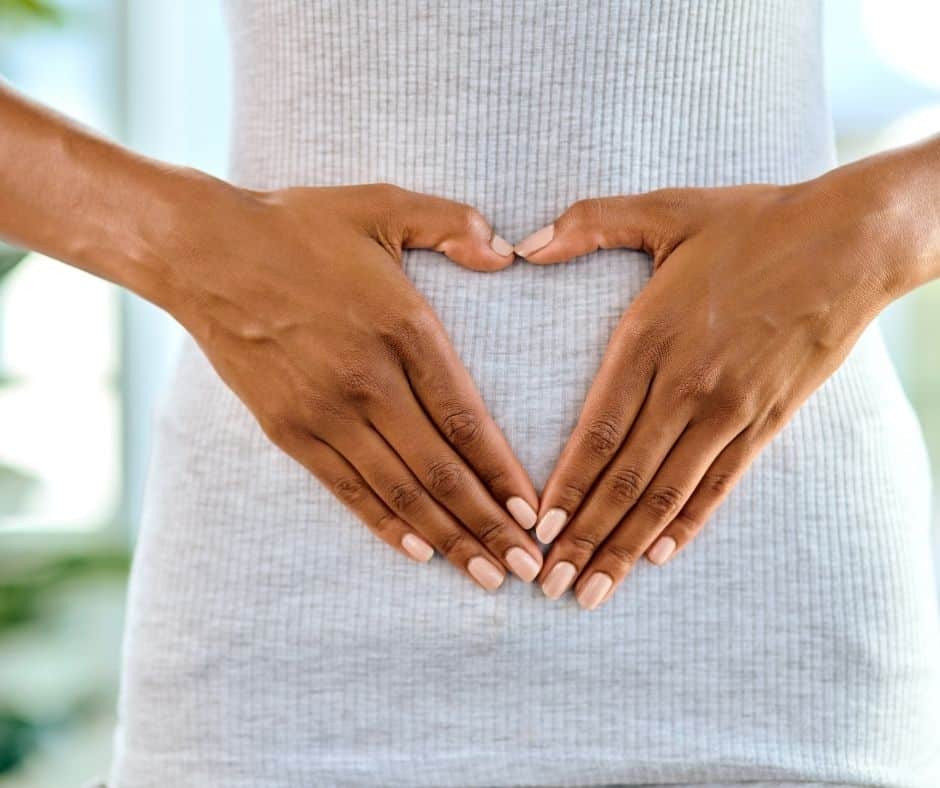
This is not a sponsored post, but I do have affiliate relationships with some of the products that I recommend in this post! At no extra cost to you, shopping through my links supports my blog, writing, and business. Thank you!
Interested in more science on fertility? Check out these posts below:
- Evidence-Based Tips for Boosting Implantation during the Luteal Phase
- Evidence-Based Sex Tips for Trying to Conceive
- Tracking Macros: Diet Science for Increasing Fertility & Egg Quality
- How CoQ10 Improves Egg Health in Age-Related Infertility
- The Best Prenatals of 2023 for Pregnancy + Trying to Conceive
Table of Contents
Why is gut health important to fertility?
The gut-fertility connection has been well established and works through a variety of ways. The studies keep coming out showing more and more ways that a healthy gut in women is linked to increased fertility and vaginal health, and we even have some new studies showing that improving the gut microbiome can improve fertility.
Additionally, women with infertility are more likely to struggle with gut disorders, such as Celiac Disease, and Irritable Bowel Syndrome.
Honestly, this is all great news even though it might not seem like it. There is so much we can do to improve our gut health, and thereby, our fertility.

Recent Studies In Life Sciences on Male and Female Fertility and the Gut Microbiome
- Infertile women were found to have less good bacteria, and more bad bacteria than fertile women in a small study from 2020. The life sciences study also found that supplementing with a prebiotic helped to mediate these impacts. Reference: Komiya, et. al., 2020.
- Gut microbiota dysbiosis (a poor gut microbiome composition) can increase insulin resistance and the development of polycystic ovary syndrome (PCOS). Reference: Silva & Giacobini, 2019.
- Research shows that women with recurrent miscarriages are more likely to have undiagnosed gut disorders. In particular, women with recurrent pregnancy loss were found to be more likely to have a leaky gut, which was linked to increased inflammation. The hypothesis is that the inflammatory reaction caused by a leaky gut could increase the risk of miscarriage. Reference: Tersigni, et.al;, 2018
- Without a healthy microbiome, estrogen metabolism and function doesn’t work well, and can lead to a number of reproductive health consequences including endometriosis, PCOS, endometrial hyperplasia, and infertility. Reference: Baker, Al-Nakkash, & Kralovetz, 2017.
- IBS is linked to infertility in men and women. Researchers hypothesize the connection is due to the effects of high levels of oxidative stress in both cases. The good news is that reducing oxidative stress by living healthier with a better diet rich in micronutrients (like the fertility diet), limiting caffeine and alcohol, avoiding smoking, exercising, and maintaining a normal body mass index help address both issues. Reference: Anton, et.al, 2020.
- Women with unexplained infertility have 3.5 times higher chance of having Celiac Disease. It is estimated that six percent of women who have unexplained infertility actually have Celiac Disease (though this may be higher). Reference: Singh, et.al., 2016
- Gut health, and gut microbiome are closely linked to immune function. When our immune system isn’t working optimally as a result of poor gut health, our bodies can enter a state of chronic inflammation, which is associated with pregnancy loss (see the first reference). It is also linked to implantation failure, autoimmue disorders linked to fertility, and other issues. Luckily, probiotic supplementation to support gut health can decrease inflammation, fight pathogens, and improve our immune system. Reference: Lazar, et.al., 2018.
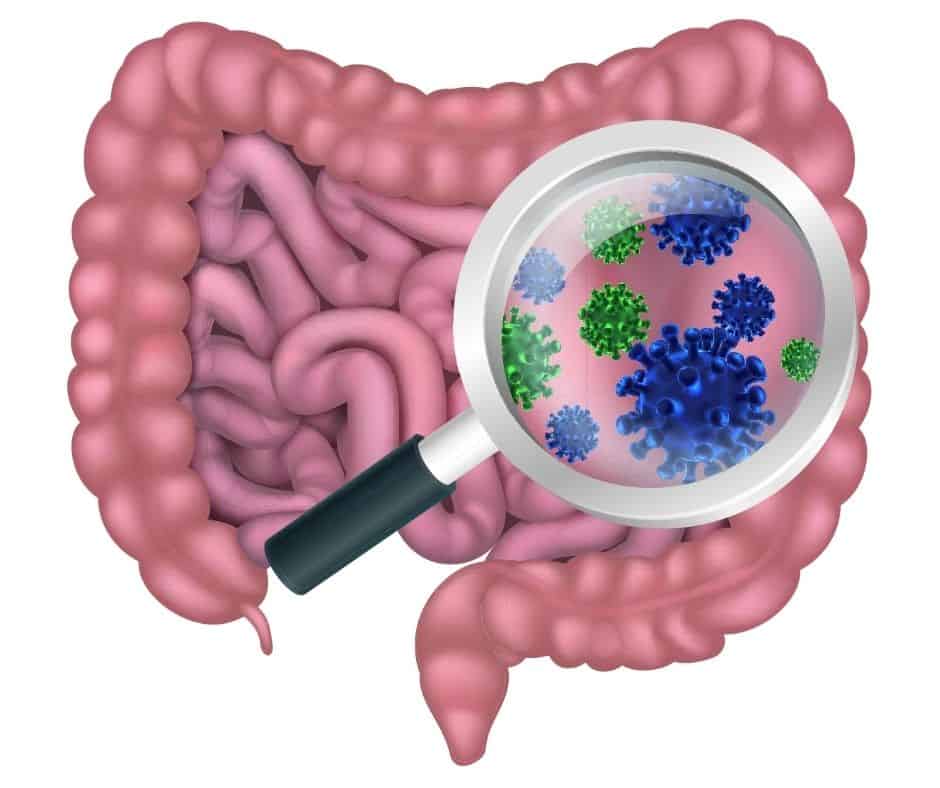
How can you improve your gut health for fertility?
There are SO many ways you can improve your gut health! These will be changes you can make while trying to conceive, and that will benefit your health for the rest of your life.
- The first thing is to be properly diagnosed and treated for intestinal disorders. That means you want a full work up for celiac, IBS, and other gut-related disorders, and you want to work on HEALING by changing your diet and lifestyle as necessary. You might need to get a stool analysis, food sensitivity testing, or get serum antibody testing. See a GI specialist, your fertility specialist, and perhaps a naturopath as well for a full work-up.
- Remove inflammatory foods from your diet. You don’t have to wait for the medical doctors to put you on reproductive medicine or fertility medication, or to tell you that for most people sugars, dairy, processed foods, alcohol, caffeine, refined grains, and all gluten is inflammatory. And, likely, there will be other foods you identify in your food sensitivity testing that are personal to you. These efforts will also reduce your oxidative stress- which is linked to infertility and gut conditions like IBS.
- Consume a specific fertility-diet. Surprise, it is the same as a generic gut health diet! You want healing foods that are full of micronutrients like healthy fats, leafy greens, bone broth, fermented foods, some fruits, and lots of vegetables! Here is my recipe for home-made bone broth. When I don’t manage to make bone broth, I heat up this organic bone broth powder in hot water and enjoy. (If you’re on your period and your acupuncturist approves, add a little Korean Ginseng to the bone broth its AMAZING. Makes cramps dissolve instantly).
- Meditate and manage stress. This is part of a plan for gut-healing just as it is part of a plan for fertility for women. Here is my simple guide for incorporating 15-20 minutes a day of guided-imagery meditation into your life while trying to conceive.
- See a Naturopath for help with choosing supplements that are tailored to your needs. (Here are my favorites for fertility)
- Take a really high-quality probiotic + prebiotic. My husband and I take the Daily Synbiotic probiotic from Seed, and it has totally changed my gut health. It has 24 human-sourced bacteria strains, each of which is clinically researched in human trials and shown to provide benefits in one of these areas: digestive health, gut immune function, heart health, skin health, reproductive health, vaginal health, gut barrier integrity, and oxidative stress (hello egg health!). And there is a strain that boosts folate production. And it is shipped in a glass container protected by compostable packaging. I love this company. My readers can get 15% off your first month’s supply with the code TOMAKEAMOMMY. Grab your Seed synbiotic with 15% off here! More recommended probiotics, and more about Seed and my personal experience below!
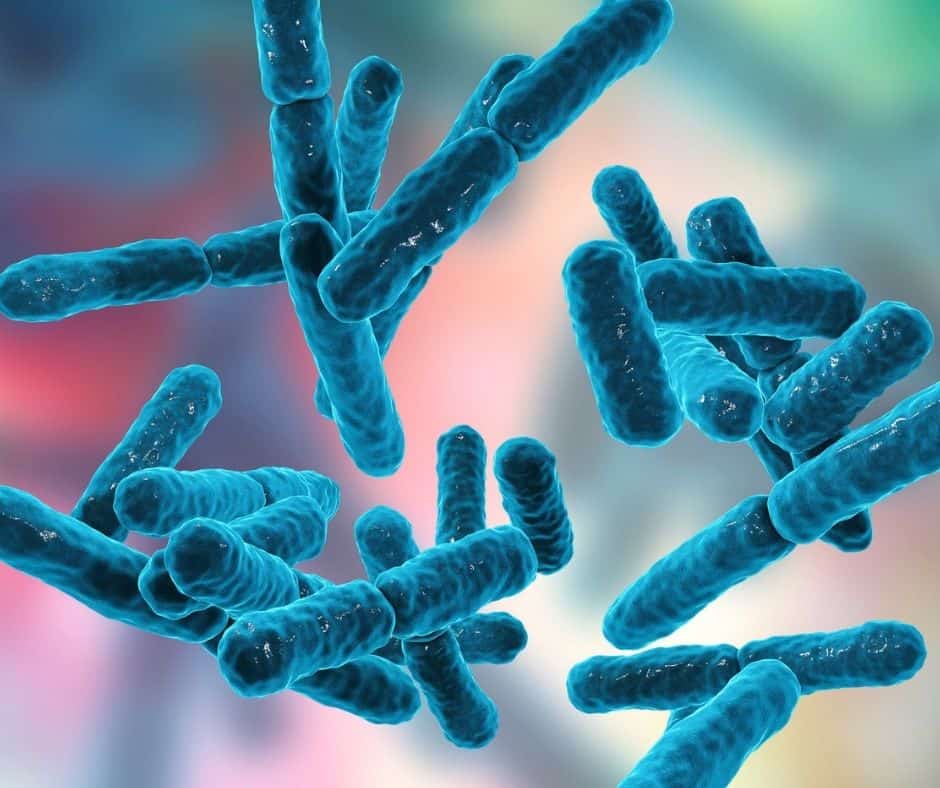
Can Probiotics Help You Get Pregnant and Combat Infertility??
Here is the amazing thing! Yes, probiotics are great for gut health and improving gut dysbiosis, which in turn improves reproductive health and fertility. But there are also probiotic bacterial strains that are clinically shown to BOOST fertility, in women, by improving natural folate production and vaginal health.
Folate is an essential vitamin that supports cellular health and plays a critical role in fertility and pregnancy. Several bacteria in this group work by helping your body naturally produce more folate. Folate is something you want in preparation for pregnancy–before and through conception. Several other probiotic strains lower rates of vaginal yeast infections and improve women’s reproductive and overall health. The strains listed below perform some of these tasks, but no strain is proven to do them all.
Bacterial Strains in Probiotics that Boost Fertility
- Bifidobacterium adolescentis, SD-BA5-IT – boosting folate production
- Lactobacillus crispatus, SD-LCR01-IT– Vaginal Biome
- Lactobacillus fermentum, SD-LF8-IT– boosting folate production
- Lactobacillus rhamnosus GR-1 – preventing yeast infections and UTIs
- Lactobacillus reuteri RC-14 – preventing yeast infections and UTIs
- Lactobacillus casei rhamnosus Lcr35 – restoring vaginal flora after antibiotics
What Probiotic Should I Take for a Successful Pregnancy?
Gut health is closely linked to overall health and fertility, and a probiotic is the right place to start to support your good bacteria in your gut! My favorite probiotic has all of the above strains shown to boost fertility-related health outcomes in clinical trials. This doesn’t mean that it is intended to treat infertility in women, but its formulation contains 24 clinically and scientifically studied strains to support systemic health through gut happiness, which we know is crucial to fertility and reproductive health.
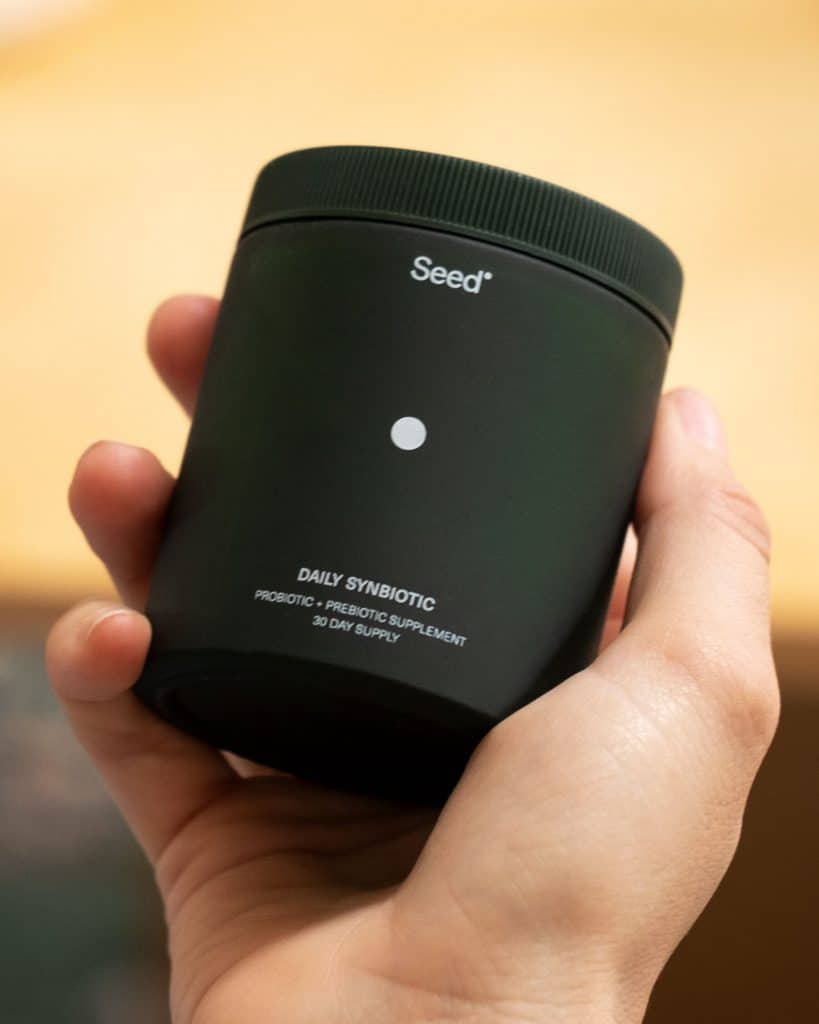
I use this product Daily Synbiotic from Seed, and I think it is the best probiotic on the planet for pregnancy health. It has 24 human-sourced bacteria strains, each of which is clinically researched in human trials and shown to provide benefits in one of these areas: digestive health, gut immune function, heart health, skin health, reproductive health, gut barrier integrity, and oxidative stress (hello egg health!) for human reproduction. AND there is a probiotic strain that boosts folate production, which is critical for achieving health pregnancies. AND it is shipped in a glass container protected by compostable packaging. They are a zero-waste followers’ dream!
I have an ongoing affiliate relationship with Seed because I think they are amazing. Did you know they are also developing probiotics to save the bees, bacteria to decompose plastic, and developing the world’s largest POOP database to train Artificial Intelligence to change the future of gut health? Now, that is a company I can stand behind. More info on the Seed Synbiotic, and my personal experience with it below!
Get 15% off your first order with Seed with code TOMAKEAMOMMY.
Best Probiotic Brands for Infertility
I’ve already shared my favorite above, but I thought I would share a few more that have bacterial strains shown to boost fertility in women. Here is a list of all the ones I have found, that also don’t have gross fillers. The ONLY one that has ALL the strains shown to be related to fertility health, is the Seed Synbiotic.
- Seed Daily Synbiotic DS-01–Qualified for a study with the FDA and if passed will be able to make drug claims on this product for IBS. Uses 24 bacterial strains with very reputable science behind safety and effectiveness in digestive health, heart health, skin health, gut immunity, gut barrier integrity, and micronutrient synthesis. This is the only probiotic I am aware of that contains all the strains beneficial to fertility. Contains: Bifidobacterium longum SD-BB536-JP, Bifidobacterium breve SD-BR3-IT, Lactobacillus plantarum SD-LP1-IT, Lactobacillus rhamnosus SD-LR6-IT, Lactobacillus reuteri SD-LRE2-IT, Bifidobacterium longum HRVD90b-US, Bifidobacterium lactis RD-BS5-IT, Lactobacillus casei HRVD300-US, Bifidobacterium breve HRVD521-US, Bifidobacterium lactis HRVD524-US, Lactobacillus rhamnosus HRVD113-US, Bifidobacterium lactis SD-150-BE, Lactobacillus rhamnosus SD-GG-BE, Lactobacillus reuteri SD-RD830-FR, Bifidobacterium adolescentis SD-BA5-IT, Lactobacillus crispatus SD-LCR01-IT, Lactobacillus fermentum SD-LF8-IT, Lactobacillus plantarum SD-LPLDL-UK, Bifidobacterium lactis SD-MB2409-IT, Lactobacillus salivarius SD-LS1-IT, Bifidobacterium lactis SD-CECT8145-SP, Bifidobacterium longum SD-CECT7347-SP, Lactobacillus casei SD-CECT9104-SP. Use “TOMAKEAMOMMY” at checkout for 15% off your first month’s order.
- Now Foods Probiotic-10™ 100 Billion Veg Capsules–Contains: Lactobacillus acidophilus (La-14), Bifidobacterium lactis (Bi-04), Lactobacillus plantarum (Lp-115), Lactobacillus casei (Lc-11), Lactobacillus rhamnosus (Lr-32), Lactobacillus paracasei (Lpc-37), Bifidobacterium breve (Bb-03), Streptococcus thermophilus (St-21), Lactobacillus salivarius (Ls-33), Bifidobacterium longum (Bi-05)
- Baby & Me 2 Prenatal Probiotic + Prebiotic– In addition to dandelion root, beetroot, and ginger root as prebiotics and nourishing boosters, it Contains: Lactobacillus rhamnosus (HN001), Bifidobacterium lactis (SD-5219), Lactobacillus acidophilus (SD-5212), Lactobacillus casei (SD-52-13), Lactobacillus plantarum (SD-5209), Lactobacillus rhamnosus (SD-52-17), Lactobacillus salivarius (SD-5208), Lactobacillus brevis (SD-5214), Lactobacillus bulgaricus (SD-6833), Lactobacillus gasseri (SD-5585), Lactococcus lactis (SD-5584), Bifidobacterium longum (SD-5588), Bifidobacterium bifidum (SD-6576), Bifidobacterium infantis (SD-6720), Streptococcus thermophilus (SD-5207)
- MegaFlora Women’s Probiotic– includes strains particular to supporting vaginal and urinary tract health- Bifidobacterium lactis (SD-5219), Lactobacillus acidophilus (SD-5212), Lactobacillus casei (SD-52-13), Lactobacillus plantarum (SD-5209), actobacillus plantarum (LP115), Lactobacillus rhamnosus (HN001), Lactobacillus salivarius (SD-5208), Lactobacillus brevis (SD-5214), Lactobacillus bulgaricus (SD-6833), Lactobacillus gasseri (SD-5585), Lactococcus lactis (SD-5584), Bifidobacterium longum (SD-5588), Bifidobacterium bifidum (SD-6576), Streptococcus thermophilus (SD-5207)
If these probiotics are outside of your budget, or unavailable in the country you live in, don’t freak out! Anything that increases your gut health is going to be better than nothing. Try to find a probiotic that specifically names the strains, so instead of typing in Google, “Lactobacillus,” for example, say, “Lactobacillus acidophilus (SD-5212)” or another strain.
In general the more probiotic strains the better. So, read the text fully on the bottle before purchasing. Also, the good news about probiotics is that I haven’t heard any horror stories about them. In other words, the most you are likely risking is the money you spend, and not (like protein powder for example), that you are accidentally ingesting unsafe amounts of heavy metals.
Please note, I have not reviewed every probiotic on the planet. There are so many options, and as long as they include a variety of strains, including the ones good for folate production, the vaginal biome, and preventing UTIs, you are doing good.
Probiotics for Vaginal Microbiome Health
So, all of the above probiotics are also good for vaginal health. There are some probiotics that are specifically targeted to help those who struggle with reoccurring vaginal yeast infections, and thus target vaginal health. Those are great, but many of them have a limited amount of strains and are missing the strains that boost folate production, and that help with gut health and immunity in general- which are both related to overall fertility in women.
So, don’t get distracted by a probiotic with a limited range of strains, just because it is marketed as for women or for vaginal health.
Seed Daily Synbiotic Review
This is NOT a sponsored post, but I do have an affiliate relationship with Seed.
So I LOVE Seed. I love how science-y it is, I love that they are dedicated to improving women’s health, and that they are passionate about sustainability and their footprint, and more.
But I also love how I poop when I’m on it, haha.
Honestly- a lot of us are looking for an immediate response to a new probiotic, and I with very few do I get any response at all. Not only did I struggle with fertility, but I also have to keep on top of my IBS symptoms through diet, lifestyle, and supplement choices.
With Seed, I get an immediate response. And I’ve been off it and on it again so many times due to availability, travel, etc., that the, ahem, changes, are pretty consistent when I start it again. So basically, the first few days my poops become a bit softer and more urgent. And then, like magic, I enter poop heaven- one perfectly formed and easy poop per day. That’s what my gastroenterologist says is our pooping goal :-).
I started using Seed in 2019, but I have NOT been consistent about staying on it. And let me tell, you I can tell a difference between any other probiotic I grab at the store (including the ones I recommended above, all of which I have taken), and Seed. I’m a fan of Seed.
The Seed formula was developed by the Seed team in conjunction with scientists and doctors who are experts in the field of probiotics. Their Chief Scientist is Dr Gregor Reid, Ph.D., a world-renowned specialist in beneficial microbes. He serves as the Chair of the United Nations World Health Organization Expert Panel on Probiotics. And he led the group that authored the globally accepted definition of ‘probiotics’. Additionally, Seed has a Scientific Advisory Board, made up of male and female MDs and PhDs. These are medical experts who want to change the world with probiotics.
Don’t take my word for it. Read more about the science of Seed here.
This is not a sponsored post, all opinions are my own, and I do receive an affiliate commission if you purchase Seed through my links. Before I was approved as an affiliate, I completed a rather lengthy educational course on the science behind their Synbiotics. Also, I have spent my own money buying Seed, and gifted Seed to my mother and other relatives. Thank you for supporting my blog through the brands I support!
Want to get pregnant fast?
Love lists? Me too. Grab my 79 Things I did to transform my life and get pregnant in less than 3 months after 2 years of infertility and miscarriages! Totally free!
Anna Rapp is a fertility journalist and non-toxic living expert. When Anna Rapp was struggling with infertility and recurrent early miscarriage, she was diagnosed with diminished ovarian reserve, High FSH, low AMH, low follicle count, endometriosis, and an MTHFR mutation. Despite being told donor eggs were her only solution, Anna used her graduate training in research methods and analysis to read everything she could find on fertility and egg health. Ultimately, she lowered her FSH and got pregnant naturally (twice). She blogs about how she did it and encourages her readers to take charge of their fertility journey and get happy, healthy, and pregnant!


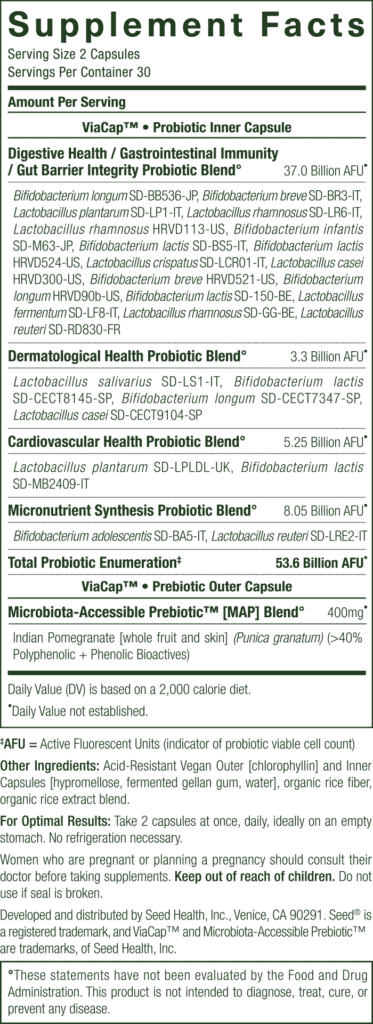
Is Mary Ruths Organics a good probiotic for fertility and pregnancy?